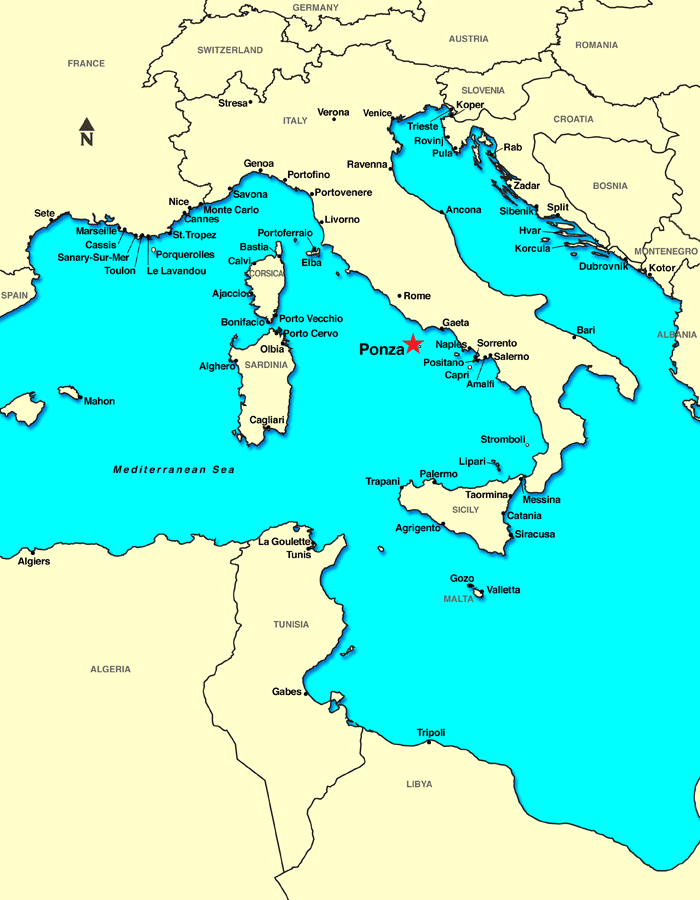Ponza
 Ponza is the largest of the Pontine archipelago south of Cape Circeo on the Italian mainland. It takes its current name from Pontius Pilate of New Testament fame who had earlier been governor there. Some writers have attempted to link Ponza with Atlantis. In antiquity, it was called Tyrrhenia and what we see today is just a remnant of a much larger landmass that legends claim to have been connected to the mainland with a large coastal city. The area is active both volcanically and seismically unstable. The harbour floor of nearby Pozzuoli on the mainland has sunk and risen several times over the past 3,000 years. Any connection between Ponza and Atlantis is purely speculative but in some ways, it has a greater claim to consideration than Santorini.
Ponza is the largest of the Pontine archipelago south of Cape Circeo on the Italian mainland. It takes its current name from Pontius Pilate of New Testament fame who had earlier been governor there. Some writers have attempted to link Ponza with Atlantis. In antiquity, it was called Tyrrhenia and what we see today is just a remnant of a much larger landmass that legends claim to have been connected to the mainland with a large coastal city. The area is active both volcanically and seismically unstable. The harbour floor of nearby Pozzuoli on the mainland has sunk and risen several times over the past 3,000 years. Any connection between Ponza and Atlantis is purely speculative but in some ways, it has a greater claim to consideration than Santorini.
>The nearest that Ponza came to being associated with Atlantis was probably in a 1997 paper(a) that included the following comment – ” Ponza bears many similarities to the saga of Atlantis. Legends say that Ponza was the lost island of Tyrrhenia (I think Tirrenide was intended TO’C), which was large and had a city on its edge. It was connected by land to the Italian mainland near Naples. A Volcano erupted and the island sank. Only the mountaintop remained, now called Ponza. Near Naples is Pozzuoli, where [sunken] Roman temples in the harbor rose again in the late 1960s due to volcanic processes.“<
(a) F. Bellucci et al. “Structure and geological evolution of the island of Ponza, Italy: inferences from geological and gravimetric data”, Journal of Volcanology and Geothermal Research, Vol. 79, Issues 1-2, October 1997, pp. 87-96 *
